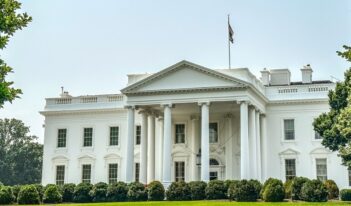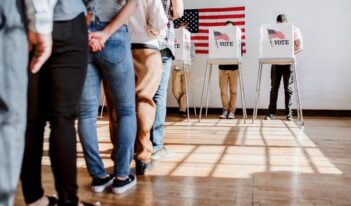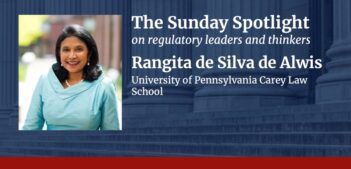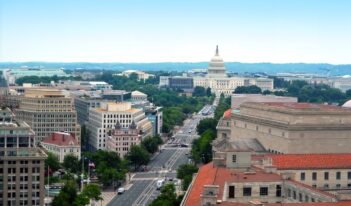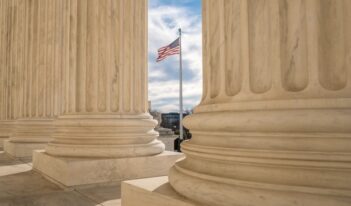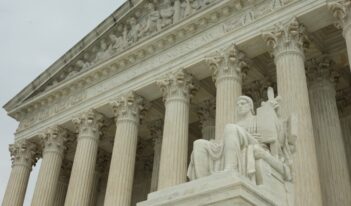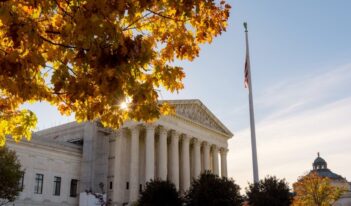Textual Tensions in the Vesting Thesis
The Constitution’s Vesting Clause may not provide the broad grant of presidential power that some scholars have assumed.
Election Security and Misinformation Regulation
Scholars discuss legal solutions and limits for targeting election misinformation.
A Fresh Look at the President’s Procurement Power
Despite recent skepticism, the President’s broad authority over federal contractors will remain.
Valuing Animal Life in Regulatory Impact Analyses
Scholar argues that regulators should value the lives of animals in their benefit-cost analyses.
Achieving Gender Parity
Rangita de Silva de Alwis discusses the state of women in leadership positions around the globe.
Revealing the Submerged Administrative State
The hidden nature of the administrative state contributes to misperceptions of important government policies.
A System for Effective Rule Design
Scholar proposes a rule design framework for defining the regulator-regulatee relationship.
Supreme Court Should Not Review Phony Separation of Powers Case
The petitioners in Consumers’ Research v. CPSC lack standing to challenge the Commission’s removal protection.
A Legal Earthquake
With several key decisions this term, the Supreme Court has shaken up prevailing governing doctrines and produced substantial legal uncertainty.
The Imperial Supreme Court
Loper Bright significantly expands the power of the Supreme Court at the expense of democratic institutions of government.
The End of the Chevron Era
The Administrative Procedure Act empowers courts—not agencies—to decide a statute’s single best meaning.
Supreme Court Needlessly Expands U.S. Statute of Limitations
In Corner Post v. Board of Governors, the Court renders agency rules more vulnerable to challenge.

